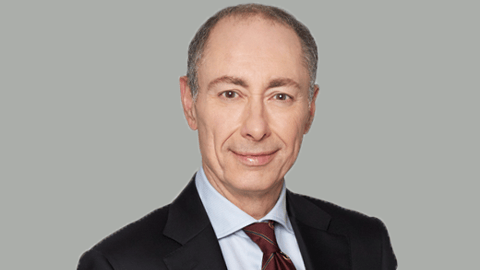DOs and DON'Ts of physician will-planning at any age
Whether it's discomfort with facing our own mortality or the assumption that the grim reaper is a distant concern, many put off writing a will.
Some young, in-debt doctors with few assets may see little point—but experts argue that almost every adult should have one.
Dr. Paul Healey runs the popular Physician Financial Independence (Canada) Facebook group, also known as PFI, with his pediatrician wife Dr. Jane Healey. He says that most physicians need a will by about age 30.
“At that point, they are usually starting to accumulate assets,” said the Oakville, Ont., ER physician. “Even if they don't have a spouse or children, they are going to want to instruct what's to happen to those assets if they die.”
Certified financial planner Barbara Knoblach (PhD), who specializes in serving the unique financial needs of physicians, agrees that will-planning should start early. “While the chance of dying is low for a young and healthy adult, it is not zero. For this reason, we all have to prepare for a low-probability but high-impact event.”
Why draw up a will?
Knoblach, who is part of Money Coaches Canada, a national network of fee-only financial planners, points out that the timing of setting up a will differs from person to person. But generally someone should draw up a will if one or more of the following applies:
- They own (or co-own) real estate.
- They have established savings and/or investments. “Even a relatively modest sum ($10,000 or more) would be sufficient.”
- They have young children.
- They are the owners of a professional corporation or have other business interests.
- They want to leave specific items (family heirlooms) to designated beneficiaries.
- There is a potential of conflict within the family, e.g., blended family situations, prior divorce, conflict between siblings, or similar.
- Dual citizenship situations and/or having an estate in another country. (In these instances, not only Canadian laws apply but also the laws of the country in which the estate is held.)
“For most adults, one or more of these points will apply even at a relatively young age. At that point, it is the right time to have a will drawn up,” said Knoblach.
What about debt?
“It is a commonly held misconception that beneficiaries inherit a deceased person’s debts, but this is not true,” said Knoblach. “A will does not distribute debts to beneficiaries.”
There are only a few exceptions to this, such as having a joint account with another person who is associated with a debt (e.g., a joint line of credit or a joint vehicle loan). This debt will transfer to the survivor.
Knoblach points out that if an estate has debts, they will have to be paid first out of the assets held in the estate—before the rest of the estate can be distributed to named beneficiaries. In extreme cases, she said, a named beneficiary may not receive any share of the estate of the deceased person because all assets had to be used for paying off debts.
Even if there are few assets and/or debt, there are other significant reasons to set up a will, such as, naming a guardian for minor children, funeral instructions or passing on personal belongings.
4 'DON'Ts' when appointing an executor
Money Coaches Canada certified financial planner Barbara Knoblach offers these tips.
- Don't appoint an executor living in another province or out of the country.
- Don't appoint multiple adult children equally as co-executors. This can lead to a deadlock if there is a difference in opinion between the executors.
- Don't automatically reject the idea of a professional executor because of costs while overlooking the potential pitfalls that come with appointing an unqualified person.
- Don't appoint a family member who is not up to the task. "I sometimes see parents appointing a young adult child (below the age of 20) as their executor, because they cannot think of a better alternative. In some instances, the young adult child is also appointed as the guardian of younger siblings. This is asking for trouble. When questioned, parents will typically admit that the young adult child is not qualified to act as their executor and/or as a guardian for younger siblings."
Choosing an executor
Acting as an executor of a will is a lot of work that requires someone with the time to execute a will and the financial acumen to handle a complex estate. They should also ideally live close by in the same province, to avoid legal and administrative complications, such as additional tax filings, bond requirements and potential court restrictions on managing the estate.
“The executor should be an absolutely trustworthy person of highest integrity. Ideally, the executor should not have a personal claim on the estate,” said Knoblach. “It can be problematic to appoint an executor who is also a beneficiary of the estate, especially if there are other beneficiaries in the mix. It may be prudent to identify a professional either as the primary executor or as a backup executor."
Another key consideration is revisiting the issue of who the executor is regularly. Someone who was once appropriate or capable might become ill, incapacitated or pass away.
Revising a will
A will should be revised and updated when any significant life changes happen, e.g., the birth of a child, the incorporation of a business, marriage or divorce, when changes are required to executors or beneficiaries. It is generally prudent to review an existing will every three to five years, said Knoblach, to identify if there are any areas that require an update. Otherwise, there is a potential to end up with a will that is decades old and completely outdated.
Dr. Healey says he recommends wills be updated every five years. “This is because things change, children become older and become adults, you may acquire more assets, you may have gained or lost your corporation so it is really important to revisit a will very frequently."
If you have a corporation, you definitely need to see a lawyer because you'll probably have a different will for your corporation and a separate personal will, said Dr. Healey. "I can't emphasize enough the importance of seeing a really knowledgeable lawyer when you get your will done because there's so many different aspects to it that really only a lawyer would have the knowledge of,” said Dr. Healey.
DIY wills and other pitfalls
Younger doctors who are relatively new to their medical practice may think they don't need a will. Either that or they might try to draw it up themselves, appoint an inappropriate executor or overlook the potential size and complexity of their estate.
“If someone is just coming out of medical school and has a lot of student loans, they may not yet have a full grasp on their earnings potential and how this could affect their financial position within a few years,” said Knoblach.
“I have seen instances where young physicians were going from negative net worth due to student loans to a seven-figure net worth within a relatively short period of time,” she said. “With this typically comes increased complexity of the estate, in the form of professional corporations, real estate holdings, investment holdings across different account types, to name a few.”
While DIY will kits and online will-making are options, most financial planners advise against them, except for cases in which assets are modest and the directives very simple.
“I’m a big proponent of doing a lot of your personal finances yourself, but wills are not part of that, because a will really should be prepared by a lawyer,” said Dr. Healey. “There's just too much nuance to the law, and you really need someone who is experienced and knows what questions to ask and make sure everything is set up appropriately. It is well worth spending the money on that.”
Because the estates of physicians are often of higher complexity, doctors should consider assembling a team of financial and legal experts (financial planner, accountant, lawyer) who could assist the executor in carrying out their function.
Depending on the complexity, you can expect to spend anywhere from $1,500 to $3,000 to have professional estate planning services, said Dr. Healey.
“This is not something to skimp on,” he said. “You want to make sure that your assets are distributed to the right people and you want to make sure that all of your dependents are taken care of. Creating a will online or with a do-it-yourself kit, he said, “is likely going to create as many problems as it solves.”
If a will is not written professionally, several problems may arise, said Knoblach.
- It could include clauses and stipulations that render the will invalid.
- Failure to receive a review by a legal professional may cause key assets to be overlooked.
- Incorrect witnessing/failing to get two witnesses to sign the document correctly.
Incorporated MDs
Knoblach has even seen instances in which incorporated physicians fail to make mention of their medical corporation in their estate planning documents.
“In many instances, doctors forget that they are also business owners. A professional corporation is a separate legal entity, which does not cease to exist when its owner passes away,” said Knoblach. “Succession planning for the corporation is therefore advised. This often gets overlooked in estate planning documents.”
Of course, for parents of minors, equally important is spelling out who the guardians are in case of the death(s) of parent(s).
“I remember reading a DIY will in which a couple identified two potential guardians for their minor children and left it up to the potential guardians to battle it out. A will has to provide concise instructions without leaving the potential for ambiguity.”





